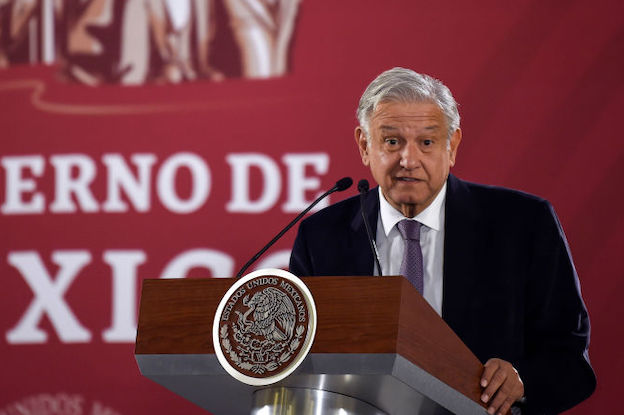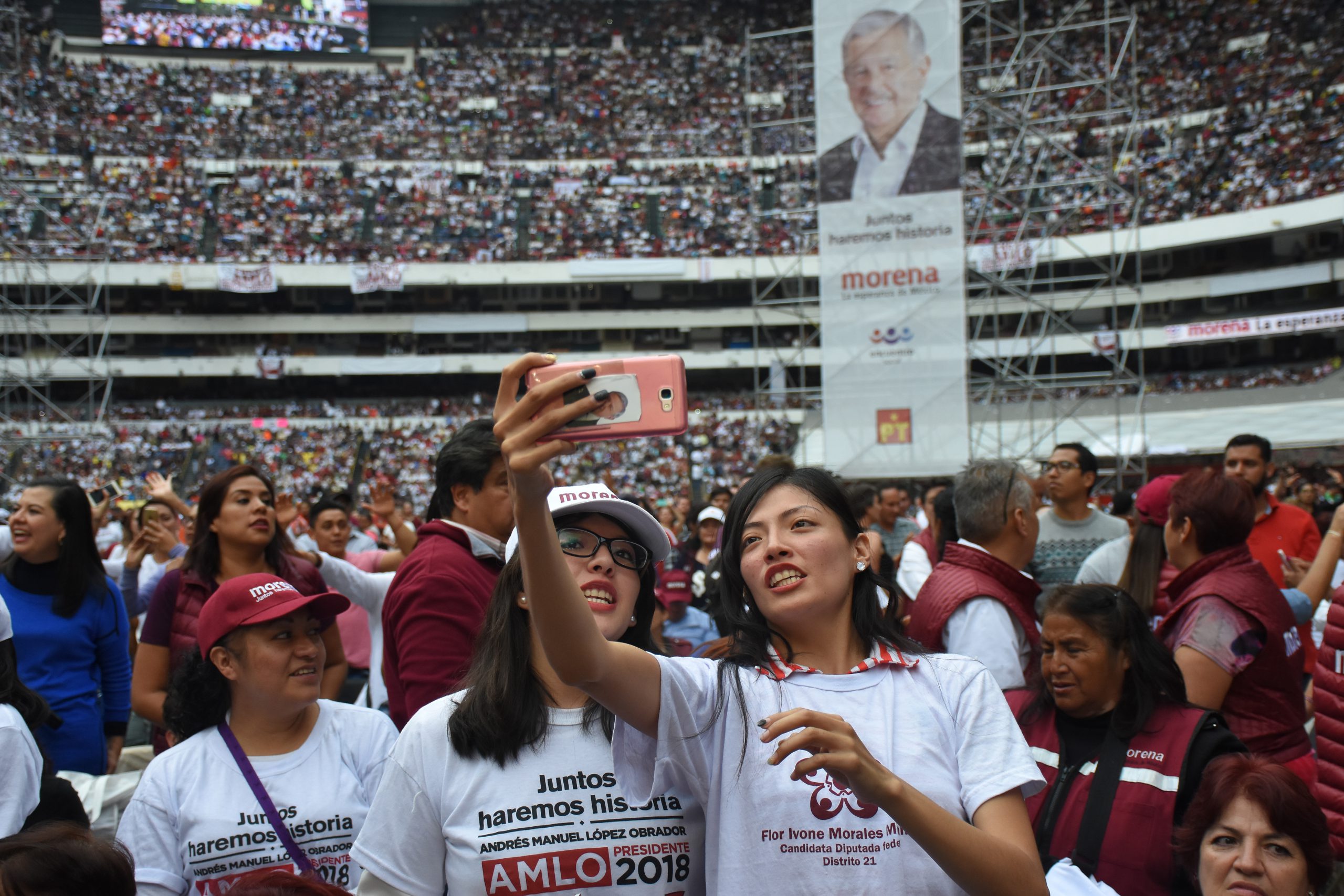Highlight of the Week
Despite opposition deputies staging a walk out and civil society groups protesting in Congress, Morena legislators on Thursday passed a constitutional reform required to create a new national guard through committee hearings in the Lower House. That sets up a key test of AMLO’s support in Congress, with a full vote expected as early as this weekend. Morena and its allies on their own don’t have the two-thirds majority required for the change, and leading opposition figures have already said they’ll vote against the measure.
Morena has pledged to move quickly through remaining hurdles standing in front of AMLO’s controversial proposal, including Senate approval and secondary laws regulating the creation of the new force. On Thursday legislators made changes in order to draw more opposition support, including a five-year limit on military authority over the body.
But broad opposition remains, with international organizations, advocacy groups and even some AMLO supporters voicing concern that institutionalizing the military’s role in public security could lead to abuses and fail to reduce violence.
Alfonso Durazo, who heads a newly revived public security ministry, said that if the national guard isn’t approved the military would be fully returned to barracks, prompting criticism that the administration was using scare tactics to get its way.
What they’re saying: Javier Risco on how Tatiana Clouthier emerged as an effective voice of moderation on security from among AMLO’s supporters; Alejandro Madrazo speaks in Congress on civil society objections to the national guard proposal; congresswoman Martha Tagle explains her opposition.
Migration Confusion
Foreign ministry officials on Thursday said that “on humanitarian grounds” Mexico would accept a U.S. plan to send non-Mexican asylum seekers south of the border while they await processing from the U.S. The announcement came days after the U.S. and Mexico agreed on a plan to fund development in Central America.
Mexican officials, including newly confirmed U.S. Ambassador Martha Bárcena, emphasized that the measure did not constitute a so-called safe third country agreement. But questions remain over how the proposal will be carried out. The head of Mexico’s immigration authority muddied the waters Thursday afternoon, saying that in the short term Mexico did not have the capacity to accept the migrants in question. AMLO’s team is expected to announce details of how the plan will be implemented on Monday.
What they’re saying: WOLA’s Adam Isacson and Elyssa Pachico on the unanswered questions of the asylum proposal, and Isacson on why there’s less than meets the eye on the Central American funding deal; the potential court challenge facing the U.S.’ asylum measure.
Briefs
Officials said that 70 percent of bondholders on the canceled Mexico City airport project had accepted a revised compensation offer. AMLO said that the deal paves the way for his alternative plan, which includes converting a military airstrip for commercial use.
Markets reacted favorably to AMLO’s 2019 budget, though not everyone was happy with the proposal: Jalisco’s Governor Enrique Alfaro and Chihuahua’s Governor Javier Corral decried a lack of funding for priority projects in their states, while actors, musicians and others called for an increase in cultural funding. Pemex was a big winner, receiving an 18 percent budget increase.
AMLO announced an increase in the minimum wage, up from 88.36 pesos per day ($4.40) to 102.68 pesos in most of the country, and to 176.72 pesos along Mexico’s northern border with the U.S.
Senators eventually endorsed one of AMLO’s nominees, Juan Luis González Alcántara, to fill a vacant Supreme Court position despite a first round of voting in which none of the president’s three choices received sufficient backing.
Quote of the Week
“Now that we’re talking about the Maya Train, some people pop up in protest saying that it will affect the environment. No. We’re not going to cut down a single tree.”
AMLO marked the beginning of construction of his tourist train project in southeast Mexico with an indigenous ceremony dedicated to Mother Earth, promising economic benefits for local communities. The project’s planned route through protected areas and a lack of official environmental impact studies has sparked concern from environmental groups.
AQ’s AMLO Update returns Jan. 11
—
Russell is AQ’s correspondent in Mexico City







